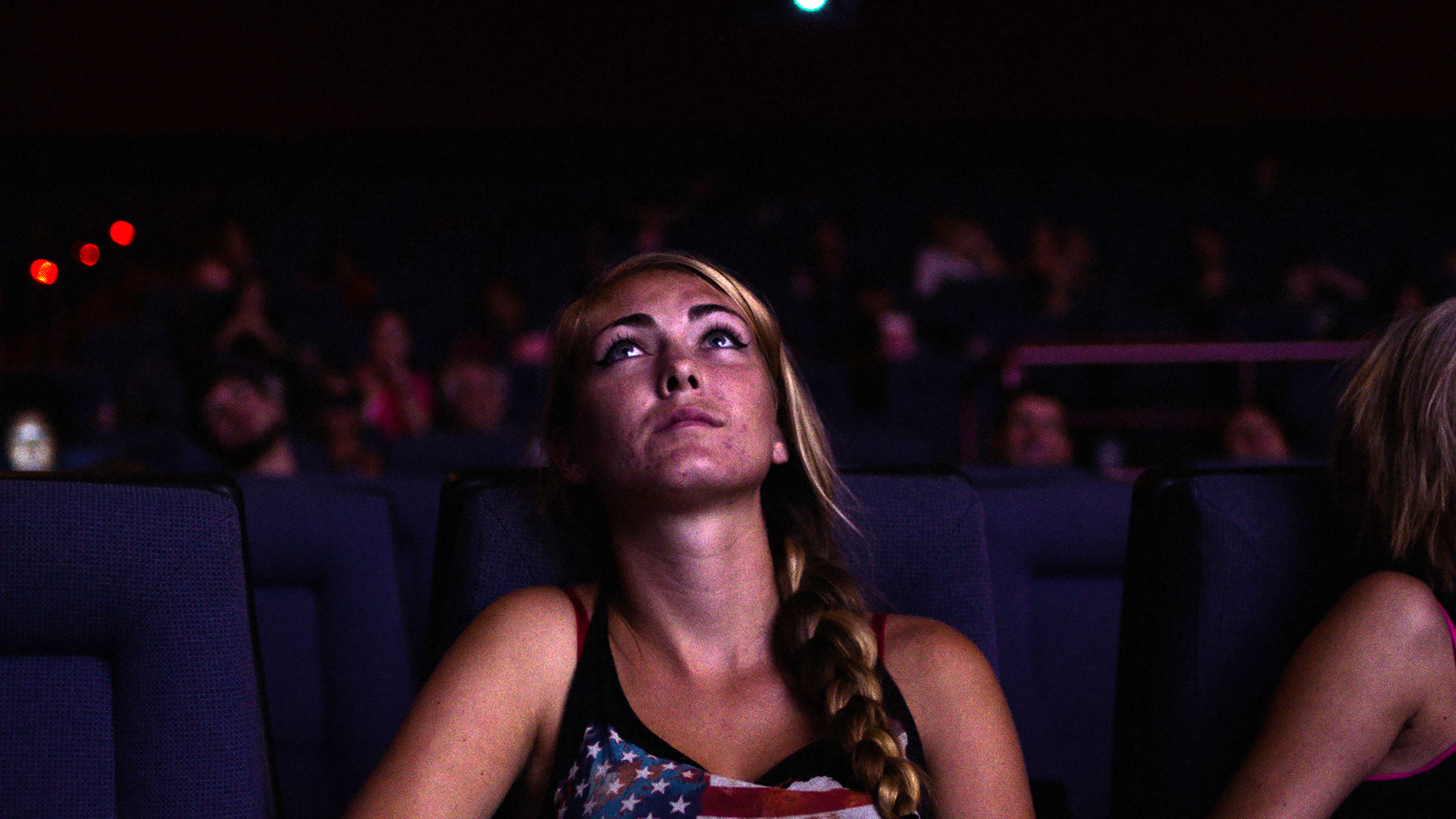Brooklyn-based writer-director Tim Sutton makes challenging, daring and experimental films often culled together from micro-budgets. His debut, “Pavilion“, is a coming-of age statement and his follow up, “Memphis”, is a poetically fragmented look at a musician’s drifting life. In his latest movie, “Dark Night,” Sutton continues to prove he’s one of the most fascinating, on-the-rise indie filmmakers working today.
Thought-provoking and unsettling, “Dark Night” is loosely based on “The Dark Knight Rises” movie theater shooting in Aurora, Colorado in 2014. But rather than a drama or docu-style film that builds towards the event, Sutton constructs an arresting collage of alienation and dysfunction through the lives of disenchanted Florida teens. Utilizing claustrophobic mall-culture edifices and a moody air of loneliness as a through-line for its disparate characters, the filmmaker paints the ugly petri dish milieu wherein such horrors could breed.
And the drama is a lead up to the shooting in a way – our review described it as a “prelude to a massacre” – but the dark drama has more on its mind than linear narrative also acting as a blistering reproach in American culture. It’s a striking, must-see film and perfect for the cinephile craving challenging cinema. We recently reached out to Sutton to discuss the movies that changed his life. And you can see more entries from our recurring feature right here.

The first movie you saw.
When I was really little I saw “Bambi” with my father. I can remember the darkened theater, the seats covered in an orange-red material. Even though it was pretty empty in the room, the feeling I had was that sitting in the theater, watching a movie, was something special. I still get that feeling when I come across that warm, natural-ethereal style hand drawn animation. I remember my father crying when Bambi’s mother dies although I may have created that memory. I lost my father not long after, so that moment became very real and very meaningful to me. Whether it happened or not doesn’t matter.
Your best moviegoing experience.
I saw “Superman” with my first girlfriend at my hometown theater in upstate New York. It was Valentine’s Day. We sat in the second to last row, surrounded by other “couples” — this was 5th grade — where I presented her with a “#1” stick-pin I had purchased at Spencer’s Gifts at the Fayetteville Mall earlier that day. She put it on immediately. Hard to beat.
Years later I saw “Pulp Fiction” on opening night at The Orpheum, a gorgeous old theater on State Street in Madison, Wisconsin. It blew me away. It felt perfect.

A film that made you realize you could be a filmmaker.
Francois Truffaut‘s “400 Blows” was so many different things to me when I first saw it — and when I watch it still — intimacy, youth, beauty, humor, authenticity, loneliness, and the epic romance of what a cinematic story can offer through intelligence and soul while using the most minimal amount of tools or tricks. The final sequence — the endless tracking shot of him running away — is in every one of my films, and the sublime ending on the beach is a feeling I reach for every time I get behind a camera. But it was “Ballast” that made me not give up on actually making a film. That movie is so underrated it pains me. The ethereal storytelling style, textured cinematography, authentic characters existing in a slowed down, strange world that is recognizable but entirely unique, how the editing withholds unnecessary explanation while rhythmically moving you forward with a fresh voice and utter directorial confidence…that film moved me so generously, it clarified my intent for [my directorial debut] “Pavilion” and strengthened my will to make it.
The first film you were obsessed with.
“Casablanca” — Bogart. Tough. Lonely. Moral. Cool. I watched it at 16 and it opened a door that is yet to close. Since then, I’ve been completely obsessed with too many films to count. The Italians alone, from Michelangelo Antonioni‘s “Passenger” to Bernardo Bertolucci ‘s “Last Tango In Paris” to Matteo Garrone‘s “Gomorrah,” would take up their own essay — but over the last ten years, I actually seek out “Michael Clayton” anytime I can. It’s both a stunningly addictive and digestible story, a genre style thriller equal in quality to the golden years of 1970s Hollywood, and a complex and relevant socio-political message all woven into a masterpiece of a movie. Clooney’ greatest achievement. My latest obsession is “Childhood Of A Leader.” Jesus that movie is so rich on so many levels that it’s hard to even start — I need to watch it a couple more times.





